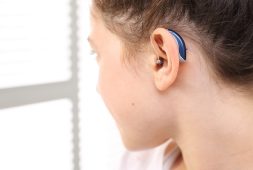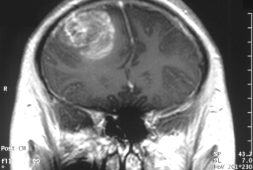
Dementia is described by the Centers for Disease Control and Prevention (CDC) as ‘not a specific disease but is rather a general term for the impaired ability to remember, think, or make decisions that interferes with doing everyday activities.’ This basically means that it can affect one’s memory, behavioral and cognitive function, as well as their day to day living.
The most common type of dementia is Alzheimer’s disease, while others include vascular dementia, Lewy body dementia and Fronto-temporal dementia, all of which usually affect those 65 years and above.
When it comes to treatment, there isn’t much to choose from, but there are a number of clinical trials going on. In one pilot study, a research team is testing out exergaming, which is basically a combination of exercise and video gaming. The study is training a bunch of older individuals diagnosed with dementia living in long-term care facilities.
The study team also found that with exergame training, this improved ‘lower extremity and cognitive functioning, step reaction time, and symptoms of depression in this group.’
According to the CDC, ‘an estimated 5.0 million adults with dementia in 2014 and projected to be nearly 14 million by 2060.’ And while dementia is mainly an elderly health issue, it isn’t considered a normal part of aging.
Unfortunately, there is no cure for dementia but there are a number of clinical trials ongoing that are studying drug development and other forms of interventions to best deal with dementia that are nonpharmaceutical and care-related.
Since there are not a lot of treatment options, Belgium researchers, alongside Eling D. de Bruin of ETH Zurich, experimented on whether doing activities that combine enjoyable and fun exercise with cognitive training, could actually work to improve symptoms in individuals diagnosed with dementia.
In order to fully test the study, the research group used the exergame Dividat Senso, which is a game developed by the ETH Zurich spin-off company, Dividat.
Working Off of a Previous Study
Back in 2015, the ETH Zurich research team found that when older folks did some physical and cognitive exercises and training, they showed better executive function and enhanced cognitive performance. But, the study was also limited in the sense that it only had healthy participants.
This is why scientists want to expound on their preliminary findings to include those with dementia. Their most recent study appears in the journal Alzheimer’s Research & Therapy.
Looking Into Exergaming and Dementia
The study group got 45 participants from two Belgian long-term care facilities that were observed to have severe dementia symptoms to start a randomized control trial. Notably, 85 was the average age of the participants.
The researchers divided the group of participants into two groups, assessing them using a list of tests to figure out the baseline functioning. After which, the research team repeated the tests after the trial was completed.
For one group, they were made to do exercise sessions using the Dividat Senso machine for at least 15 minutes, three times a week for 8 weeks. As for the other group, they were made to watch music videos of their personal choosing.
To explain, the Dividat Senso is an exercise machine that has ‘a screen and a floor platform with four lighted fields that are sensitive to pressure.’ The sensors have the ability to detect steps that go in the directions left, right, top and bottom.
Participants are made to see the patterns that pop up on the screen, then they must try to duplicate the same sequence on the floor platform using their feet. The machine will also automatically adjust to better accommodate the user’s ability and measure steps, balance and weight displacement.
What the results showed was that participants that used the exergame had better cognitive function, balance, gait speed, mobility and step reaction time. Researchers also noted that there were improvements with their leg functions and symptoms of depression.
As a result, the researchers advocate that because of their enhanced reaction time and improved leg function, it will also boost the older adults’ ability to feel and react to particular situations that could lead to them falling.
On the other hand, for the participants that watched music videos, their cognitive ability and reaction time continued to decrease.
Eling D. de Bruin said, “For the first time, there’s hope that through targeted play, we will be able not only to delay but also weaken the symptoms of dementia.”
Noteworthy Limitations of the Study
Because the participants were considered to be just a small group, the research team explain that they still need to have more extensive trials of exergaming in comparison with other types of exercise such like aerobic exercise, in order to fully confirm their outcomes.
Another limitation is that the results cannot be a generalized outcome for a bigger population of people considering their participants included only those living in two long-term Belgium facilities.
Notably, more than three-quarters of the participants were females and the researchers also didn’t take into a count their dementia-related medication use. Since the trial, the team has yet to carry out a long-term follow-up with the participants as well, which means they don’t know if there have been any long-term benefits either.
Also, one of the employees of ETH Zurich was also involved in the study, and had previously used an exergaming device that had belonged to the spin-off company as well.
What About Future Research?
The team still hopes to carry out more studies in the future that involve those diagnosed with mild cognitive impairment, which is an early indicator of dementia, in order to see whether exergaming could truly help prevent dementia symptoms from getting worse.
They would also like to incorporate MRI scans to figure out if this kind of training can change the part of the brain that’s responsible for the physical and cognitive improvement that they had originally saw in their pilot study.



